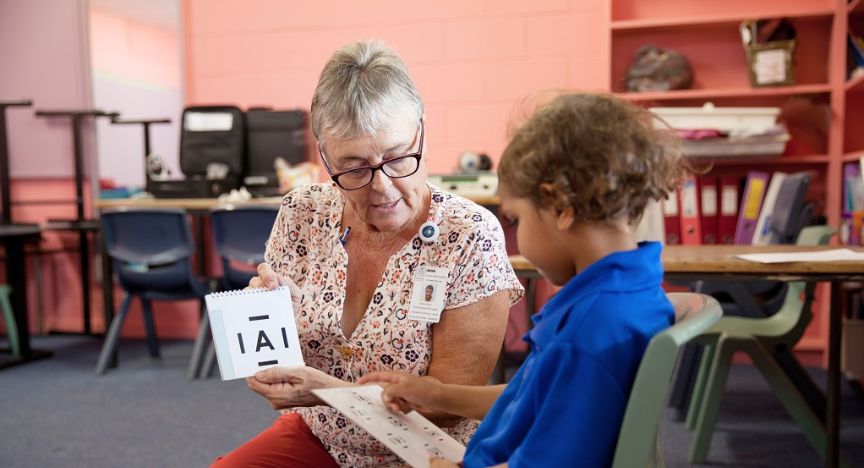
Nurses will begin visiting schools in the Central West from 28 February to screen the state’s youngest students for visual impairments that could lead to blindness.
Children’s Health Queensland’s annual free Prep vision screening program aims to detect conditions such as amblyopia or ‘lazy eye’, the leading cause of preventable blindness in Australian children.
The condition affects about two in every 100 children.
If left untreated, amblyopia and other visual impairments can have long-term impacts on a child’s social and educational development. In severe cases, amblyopia can even cause blindness if not treated early.
More than 300,000 children in 1,382 schools have received a free vision screening assessment since the state-wide program was introduced in 2016, with almost 20,000 found to have a possible visual abnormality and referred to an eye health professional for further assessment.
Last year, the program’s 44 registered nurses screened the vision of 48, 473 children in state, Catholic and independent schools across Queensland.
In the Central West region, 119 prep students were screened across 19 schools, including the Longreach School of Distance Education.
In 2024, up to 50, 000 vision screenings will be performed in more than 1500 schools.
Children’s Health Queensland Clinical Nurse and program manager Sagen Wilks said a vision screening was particularly important for children starting school to ensure they have the best possible start to their education.
“When a vision concern goes undiagnosed in a child’s formative years, it can lead to difficulties with concentration and behavioural issues in the classroom. Ultimately this
can have an impact on learning outcomes,” Ms Wilks said.
“Children’s eyes mature up until the age of eight, so early identification and treatment offers the best opportunity to address problem eye conditions.”
“Early detection and treatment can be life-changing for children.”
“Young children rarely report vision problems, so parents are often surprised to learn their child has a potential vision concern,” Ms Wilks added.
Central West Hospital and Health Service Child Health Clinical Nurse Consultant Linda Hearn said the 2024 screening program would kick off at Winton on 28 February with visits to the Winton State School and St Patrick’s.
“The Primary School Nurse Health Readiness Program is offered as a universal free prep vision screening program within our region,’’ Ms Hearn said.
“The Child Health nurses trained in the prep vision screening program receive valuable education, training and support from Children's Health Queensland as part of a ‘hub and spoke’ model.
“With our small population numbers in the Central West, compared to the rest of the state, we can boast that we have some of the best consent form return rates.
“Our thanks go to parents for supporting the program as well.’’
The vision screening, performed at schools, takes about five minutes and involves two non-invasive screening tools. Parents are welcome to attend their child’s vision screening, and this can be coordinated with their school.
Parents are encouraged to complete and return the vision screening consent pack which will be sent home from schools throughout the year.
Following the screening, families will receive notification of the screening outcome in writing. If a vision concern is found, the nurse will contact the family to provide advice on seeking further assessment with an eye health professional (optometrist or
ophthalmologist).
If you have concerns about your child’s eyes at any time, please make an appointment for your child to see an eye health professional.
For more about the Prep vision screening program, visit:
www.childrens.health.qld.gov.au/our-work/prep-vision-screening
www.childrens.health.qld.gov.au/about-us/news/feature-articles/why-vision-screening-foryour-
preppie-is-so-important